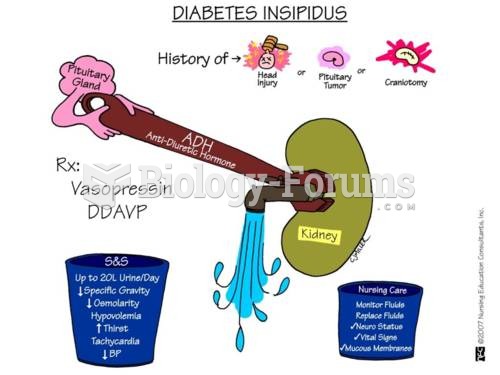Answer to Question 1
Correct Answer: 2
Rationale 1: This medication is not indicated for long-term nephrogenic diabetes insipidus.
Rationale 2: Nephrogenic DI is a condition in which the kidneys do not respond to ADH or conserve water properly. The conventional treatment is administration of the thiazide diuretic HCTZ.
Rationale 3: Additional desmopressin (ADH) will not help treat the disorder.
Rationale 4: Conivaptan (Vaprisol) would make the problem worse because it is a vasopressin-receptor blocker.
Global Rationale: Nephrogenic DI is a condition in which the kidneys do not respond to ADH or conserve water properly. The conventional treatment is administration of the thiazide diuretic HCTZ. ADH supplementation is not effective. Conivaptan (Vaprisol) would make the problem worse because it is a vasopressin-receptor blocker.
Answer to Question 2
Correct Answer: 1
Rationale 1: Higher levels of growth hormone tend to increase insulin resistance at the cellular level, which makes blood glucose increase.
Rationale 2: Growth hormone does not decrease blood glucose levels.
Rationale 3: Growth accelerates, but it is not rapid at the recommended dose range. This also does not explain the purpose of tracking blood glucose levels.
Rationale 4: The increased level of GH does not damage the pancreas or cause type 1 diabetes mellitus.
Global Rationale: Higher levels of growth hormone tend to increase insulin resistance at the cellular level, which makes blood glucose increase. Growth accelerates, but it is not rapid at the recommended dose range. This also does not explain the purpose of tracking blood glucose levels. The increased level of GH does not damage the pancreas or cause type 1 diabetes mellitus.







